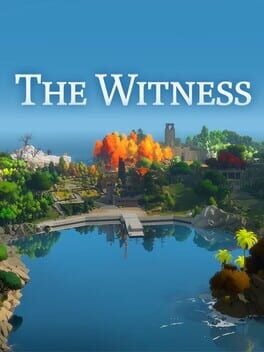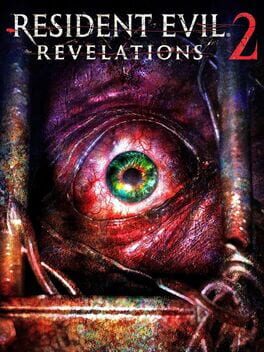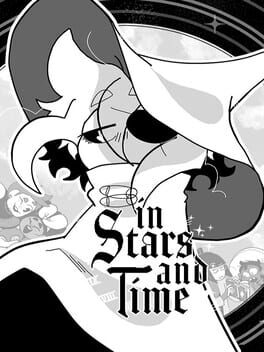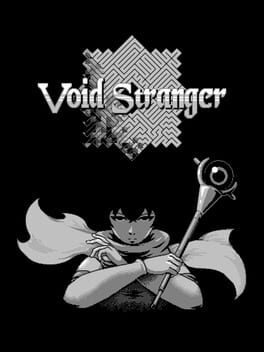PaulineRagny
2016
2023
This review contains spoilers
I really tried to give this a chance but I just can't bring myself to continue.
It's very clear to me that Devil May Cry was a big inspiration for the gameplay. Clive's eikons are basically Dante's styles. You can switch whenever and they change parts of your moveset. Unfortunately it just feels really bland to me. It's really hard to explain but I feel like there's very little synergy between different moves, very little reason to mix and match. I feel like I'm just pressing my abilities whenever they come off cooldown with no thought. The game seems to want you to juggle enemies. There are several moves that enable it, but I haven't found a reason to do so at all and actually pulling it off is incredibly finicky. In DMCV the reason why you want to juggle enemies and remain in the air is because you're a lot less likely to get attacked that way. Here it feels like they included juggling because that's what action games do without thinking about how it fits in the flow of combat. A ton of ability upgrades are just "you get to equip this on a different Eikon" and I have no idea why you'd bother. What little synergy is found is usually shared between abilities of the same Eikon. Mind you none of it is broken or feels jank. It all functions very well. I just find it really bland. The most exciting moments are the big setpiece Eikon fights and those have very simplified mechanics to accomodate for the cinematic design.
I probably would have finished it if the story hadn't also been incredibly frustrating. It displays all of Maehiro's bad writing habits. To explain I'm gonna do a slight tangent about FFXIV. FFXIV heavensward start with a high profile assassination that should shake up the political landscape of the entire world and the assassin frames the player, forcing them to go into hiding. Then heavensward's story ends up being about a completely unrelated nation and that whole assassination business gets resolved mostly off screen. Turns out it didn't happen. The status quo is safe. Something very similar happens in XVI. Clive accidentally and unknowingly summoned his Eikon and killed his little brother when he was a teen. The whole event was so traumatizing he locked it away from his memory and spent years looking for the killer. Eventually he comes to the realization that he was in fact the killer. It tries to be a powerful moment but it did nothing to me because I could see the reveal from a mile away. And then NEVERMIND the brother is alive actually. Forget all that pathos, we can't have the main character actually do something bad I guess. I'm also extra frustrated that no one, not even his companion Jill, ever tires to float the idea that maybe it's not his fault a demon took control of his body. I dunno, maybe that's a minor point but it bugs me.
I really do not like stories where magical people are oppressed by non-magical people because I find the power dynamic always feels nonsensical. The game has no black people, zero, not even among random NPCs. It makes the world feel so fake. This was a deliberate choice btw. In an interview, the devs mentioned that because the game is about slavery they didn't want to become problematic by having black people in it (I'm paraphrasing from memory but it was something along those lines). It's such a cowardly attitude. Orc are fine to have though. When the game introduces them, Clive calls them savages or animals and you murder them because they're naturally evil. Meanwhile FFVII remake and rebirth both have a ton of colored people in the world everywhere. It's really not that hard.
I played up to the 2nd visit of the desert area with the extremely generic Mario 64 desert music (btw the music in this game is so boring, I'm genuinely disappointed in Soken, he can and has done so much better). One quest there introduced the idea that goblins are sentient creatures who steal to eat and do not deserve to be hunted. Up until that point, the story portrayed goblins as being vermin to be exterminated with no nuance. Upon this revelation, Clive just goes "that's neat" and moves on with his life with no introspection, no thought towards the hundreds of goblins the game had him kill until that point. Then 20 meters away another quest has you murder goblins who are being pests. The dissonance was so baffling I closed the game and haven't resumed it since. I might still finish it someday because I hear the ending is trash and I'm morbidly curious about it but for now the game is deleted from my console. I'm sure Maehiro will get to direct more games but unless he actually learns how to fuckin tell a story I probably won't be buying.
It's very clear to me that Devil May Cry was a big inspiration for the gameplay. Clive's eikons are basically Dante's styles. You can switch whenever and they change parts of your moveset. Unfortunately it just feels really bland to me. It's really hard to explain but I feel like there's very little synergy between different moves, very little reason to mix and match. I feel like I'm just pressing my abilities whenever they come off cooldown with no thought. The game seems to want you to juggle enemies. There are several moves that enable it, but I haven't found a reason to do so at all and actually pulling it off is incredibly finicky. In DMCV the reason why you want to juggle enemies and remain in the air is because you're a lot less likely to get attacked that way. Here it feels like they included juggling because that's what action games do without thinking about how it fits in the flow of combat. A ton of ability upgrades are just "you get to equip this on a different Eikon" and I have no idea why you'd bother. What little synergy is found is usually shared between abilities of the same Eikon. Mind you none of it is broken or feels jank. It all functions very well. I just find it really bland. The most exciting moments are the big setpiece Eikon fights and those have very simplified mechanics to accomodate for the cinematic design.
I probably would have finished it if the story hadn't also been incredibly frustrating. It displays all of Maehiro's bad writing habits. To explain I'm gonna do a slight tangent about FFXIV. FFXIV heavensward start with a high profile assassination that should shake up the political landscape of the entire world and the assassin frames the player, forcing them to go into hiding. Then heavensward's story ends up being about a completely unrelated nation and that whole assassination business gets resolved mostly off screen. Turns out it didn't happen. The status quo is safe. Something very similar happens in XVI. Clive accidentally and unknowingly summoned his Eikon and killed his little brother when he was a teen. The whole event was so traumatizing he locked it away from his memory and spent years looking for the killer. Eventually he comes to the realization that he was in fact the killer. It tries to be a powerful moment but it did nothing to me because I could see the reveal from a mile away. And then NEVERMIND the brother is alive actually. Forget all that pathos, we can't have the main character actually do something bad I guess. I'm also extra frustrated that no one, not even his companion Jill, ever tires to float the idea that maybe it's not his fault a demon took control of his body. I dunno, maybe that's a minor point but it bugs me.
I really do not like stories where magical people are oppressed by non-magical people because I find the power dynamic always feels nonsensical. The game has no black people, zero, not even among random NPCs. It makes the world feel so fake. This was a deliberate choice btw. In an interview, the devs mentioned that because the game is about slavery they didn't want to become problematic by having black people in it (I'm paraphrasing from memory but it was something along those lines). It's such a cowardly attitude. Orc are fine to have though. When the game introduces them, Clive calls them savages or animals and you murder them because they're naturally evil. Meanwhile FFVII remake and rebirth both have a ton of colored people in the world everywhere. It's really not that hard.
I played up to the 2nd visit of the desert area with the extremely generic Mario 64 desert music (btw the music in this game is so boring, I'm genuinely disappointed in Soken, he can and has done so much better). One quest there introduced the idea that goblins are sentient creatures who steal to eat and do not deserve to be hunted. Up until that point, the story portrayed goblins as being vermin to be exterminated with no nuance. Upon this revelation, Clive just goes "that's neat" and moves on with his life with no introspection, no thought towards the hundreds of goblins the game had him kill until that point. Then 20 meters away another quest has you murder goblins who are being pests. The dissonance was so baffling I closed the game and haven't resumed it since. I might still finish it someday because I hear the ending is trash and I'm morbidly curious about it but for now the game is deleted from my console. I'm sure Maehiro will get to direct more games but unless he actually learns how to fuckin tell a story I probably won't be buying.
I do not understand why the Rev games are well rated. They feel super jank. The zombie animations are so stiff and some of their attacks literally come out of nowhere. There's barely any sense of impact when you shoot them with guns. I understand the Rev games are much lower budget than the mainline REs but then why aren't they recycling mechanics from 4 or 5? Is it because Rev 1 had to work on the 3DS and Rev 2 had to work on the Vita? Either way it doesn't change the fact that the game feels like shit to play, at least to me.
I got to a point where a bunch of zombies swarm you and Claire is supposed to fight them off while Moira very slowly opens a door with her crowbar. I cannot figure out how to get past this point. Maybe I'm missing something but I think I'm just in an unwinnable state. I don't have enough bombs and ammo to kill even half of them and they swarm me. I'm not really interested in replaying from the start to get to that point with more ammo and herbs. This is probably one of those games that's only fun co-op.
I got to a point where a bunch of zombies swarm you and Claire is supposed to fight them off while Moira very slowly opens a door with her crowbar. I cannot figure out how to get past this point. Maybe I'm missing something but I think I'm just in an unwinnable state. I don't have enough bombs and ammo to kill even half of them and they swarm me. I'm not really interested in replaying from the start to get to that point with more ammo and herbs. This is probably one of those games that's only fun co-op.
The direction of this game is amazing. Taking every memorable moment from the original and recreating them in imaginative and yet familiar ways is so fun.
I though the open world stuff was fine. It's kinda weird to me how people instantly make the comparison to Ubisoft games because it has "towers" I dunno. I guess I just don't consider the concept of touching a button to make other important spot appear on the map to be inherently good or bad? The reason I dislike Ubisoft games is that they're incredibly boring to me, they rarely have compelling characters, the writing is generally dogshit and they pad the hell out of the map with a billion activity icons.
In FFVII Rebirth when you touch a "tower" it reveals a maximum of three icons, often less. The open world is not a giant map, it's 6 relatively small maps seperated by more cutscene heavy setpiece chapters. I think that structure helps with the pace a lot.
The combat system is genuinely the most fun I've had in an RPG in recent years. They greatly expanded the range of gameplay styles. The materia system is really fun to figure out and the character action aspect is top notch.
I loved all the minigames. I think it's fun that most quest aren't just "go at map location and interact with thing". A lot have creative interactions attached to them. They all make you hang out with a member of your party and learn more about them.
I dunno I just don't have anything bad to say about it. When I streamed the game I tried to express all the things that annoyed or disappointed me but in the end they're all just tiny nitpicks about specific moments. I've seen a lot of complaint about the ending being way too "kingdom hearts" like in part 1 and, I don't know how to tell you this but Final Fantasy has been doing this stuff since the NES. I think it might feel weird here because those moments weren't originally meant to be endings within a trilogy.
Maybe it's all nostalgia hitting me very hard. I don't really know what this game feels like for someone who's never played the original but at the end of the day I had fun the entire time and I never put the game down until I was 100% finished. I think the game as a whole is fantastic and I cannot wait for part 3.
I though the open world stuff was fine. It's kinda weird to me how people instantly make the comparison to Ubisoft games because it has "towers" I dunno. I guess I just don't consider the concept of touching a button to make other important spot appear on the map to be inherently good or bad? The reason I dislike Ubisoft games is that they're incredibly boring to me, they rarely have compelling characters, the writing is generally dogshit and they pad the hell out of the map with a billion activity icons.
In FFVII Rebirth when you touch a "tower" it reveals a maximum of three icons, often less. The open world is not a giant map, it's 6 relatively small maps seperated by more cutscene heavy setpiece chapters. I think that structure helps with the pace a lot.
The combat system is genuinely the most fun I've had in an RPG in recent years. They greatly expanded the range of gameplay styles. The materia system is really fun to figure out and the character action aspect is top notch.
I loved all the minigames. I think it's fun that most quest aren't just "go at map location and interact with thing". A lot have creative interactions attached to them. They all make you hang out with a member of your party and learn more about them.
I dunno I just don't have anything bad to say about it. When I streamed the game I tried to express all the things that annoyed or disappointed me but in the end they're all just tiny nitpicks about specific moments. I've seen a lot of complaint about the ending being way too "kingdom hearts" like in part 1 and, I don't know how to tell you this but Final Fantasy has been doing this stuff since the NES. I think it might feel weird here because those moments weren't originally meant to be endings within a trilogy.
Maybe it's all nostalgia hitting me very hard. I don't really know what this game feels like for someone who's never played the original but at the end of the day I had fun the entire time and I never put the game down until I was 100% finished. I think the game as a whole is fantastic and I cannot wait for part 3.
2023
2023
2023
This review contains spoilers
At the risk of being more rude than it really deserves, Cocoon feels like an award bait indie game.
It's a puzzle game that wants to suggest its abstract alien environments are part of a fully formed universe. Yet it's blindingly obvious every object you interact with was placed there to craft a puzzle for the player and not to be a part of a coherent world. Why is this switch here? Why does this door function this way? It's not because you're going through a world that was lived in by people like in a Myst or Machinarium. It's because the player must have puzzles in their way. There's nothing more underwhelming to me than seeing a really cool alien shape that looks important and mysterious only to find out a few hours later that it's a glorified on/off switch for some arbitrary components of the world.
It's a game that is so terrified of you getting lost or confused, it will constantly put up barriers everywhere to keep you on the one correct path. It feels scared of being too complex. Every new mechanic it introduces rigidly interacts with the world in dedicated spots for that mechanic. You can use the green orb to move up and down specific incidental green elevators. You can use the orange orb to walk on incidental orange walkways. You can use the silver orb to shoot a bullet but only on dedicated shoot spot and only to flick a specific type of environment switch. I think at some point they forgot the purple orb existed because its gimmick is used in one short segment and then never again. Or maybe they hated making puzzles for it.
It's all so binary and inorganic. Puzzles only ever have as many moving parts as you need to solve them. You can deduce how to solve most by the fact that you will have to interact with all components. It lacks the organic interactive building blocks of a Baba is You or a Chip's Challenge to be challenging. It lacks the narrative cohesion between puzzle and environment to feel like you're walking through a coherent world in the way a Myst game would. The only couple times I ever got stopped by a puzzle was because it used a player interaction I did not know existed.
It's a game that suggests it will ramp up to some mind blowing revelation about the nature of itsworld and then it kinda doesn't really. Or well, I guess it does, but it's done in such a guided way that it doesn't feel like you figured it out on your own and you can barely play around with it. Then, having barely explored the puzzle potential of its central premise in the final hour, it just kinda stops. Roll credits.
It does looks cool and minimalist though, just like Journey or Monument Valley. That's all you need really.
It's. fine.
It's a puzzle game that wants to suggest its abstract alien environments are part of a fully formed universe. Yet it's blindingly obvious every object you interact with was placed there to craft a puzzle for the player and not to be a part of a coherent world. Why is this switch here? Why does this door function this way? It's not because you're going through a world that was lived in by people like in a Myst or Machinarium. It's because the player must have puzzles in their way. There's nothing more underwhelming to me than seeing a really cool alien shape that looks important and mysterious only to find out a few hours later that it's a glorified on/off switch for some arbitrary components of the world.
It's a game that is so terrified of you getting lost or confused, it will constantly put up barriers everywhere to keep you on the one correct path. It feels scared of being too complex. Every new mechanic it introduces rigidly interacts with the world in dedicated spots for that mechanic. You can use the green orb to move up and down specific incidental green elevators. You can use the orange orb to walk on incidental orange walkways. You can use the silver orb to shoot a bullet but only on dedicated shoot spot and only to flick a specific type of environment switch. I think at some point they forgot the purple orb existed because its gimmick is used in one short segment and then never again. Or maybe they hated making puzzles for it.
It's all so binary and inorganic. Puzzles only ever have as many moving parts as you need to solve them. You can deduce how to solve most by the fact that you will have to interact with all components. It lacks the organic interactive building blocks of a Baba is You or a Chip's Challenge to be challenging. It lacks the narrative cohesion between puzzle and environment to feel like you're walking through a coherent world in the way a Myst game would. The only couple times I ever got stopped by a puzzle was because it used a player interaction I did not know existed.
It's a game that suggests it will ramp up to some mind blowing revelation about the nature of itsworld and then it kinda doesn't really. Or well, I guess it does, but it's done in such a guided way that it doesn't feel like you figured it out on your own and you can barely play around with it. Then, having barely explored the puzzle potential of its central premise in the final hour, it just kinda stops. Roll credits.
It does looks cool and minimalist though, just like Journey or Monument Valley. That's all you need really.
It's. fine.






